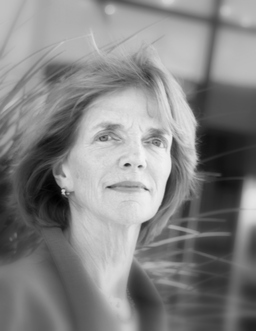
Professor Patricia Churchland
Department of Philosophy
University of California – San Diego
will be addressing the Vancouver Institute on January 28, 2012 at 8:15 p.m., Lecture Hall No. 2 in the Woodward Instructional Resources Centre, University of British Columbia.

A Canadian by birth, Professor Churchland is currently a faculty member of the UCSD Philosophy Department, an adjunct professor at the Salk Institute for Biological Studies, and an associate of the Computational Neuroscience Laboratory (Sejnowski Lab) at the Salk Institute. She won a MacArthur prize in 1991. Educated at the University of British Columbia, the University of Pittsburgh, and the University of Oxford (B.Phil.), she taught philosophy at the University of Manitoba from 1969 to 1984. Professor Churchland has focused on the interface between neuroscience and philosophy. According to Professor Churchland, philosophers are increasingly realizing that to understand the mind one must understand the brain, and this has been the thrust of much of her recent research work.
(These references were compiled by the webmaster in the hope that they will prove interesting to some readers. The web being what it is, some of them will have vanished by the time you go to look them up, and there is—of course—no guarantee of their accuracy.)
"My research focuses on the interface between neuroscience and philosophy. Although many philosophers used to dismiss the relevance of neuroscience on grounds that what mattered was “the software, not the hardware”, increasingly philosophers have come to recognize that understanding how the brain works is essential to understanding the mind.
"I explore the impact of scientific developments on our understanding of consciousness, the self, free will, decision making, ethics, learning, and religion and issues concerning the neurobiological basis of consciousness, the self, and free will, as well as on more technical questions concerning to what degree the nervous system is hierarchically organized, how the difficult issue of co-ordination and timing is managed by nervous systems, and what are the mechanisms for the perceptual phenomenon of filling-in. The central focus of my research has been the exploration and development of the hypothesis that the mind is the brain. …"
In this clip, journalist Bill Moyers interviews philosopher Patricia Smith Churchland on how empirical research in the neurosciences could have radical implications for longstanding philosophical questions concerning the nature of knowledge, the self, and conscious experience.
She also discuses the limits of our imaginative abilities, and how they have historically failed us when we attempt to speculate concerning what types of phenomena will, in principle, never be adequately explained in solely materialistic terms. Consequently, she thinks we shouldn't take a failure of imagination as an insight into ontological necessity.